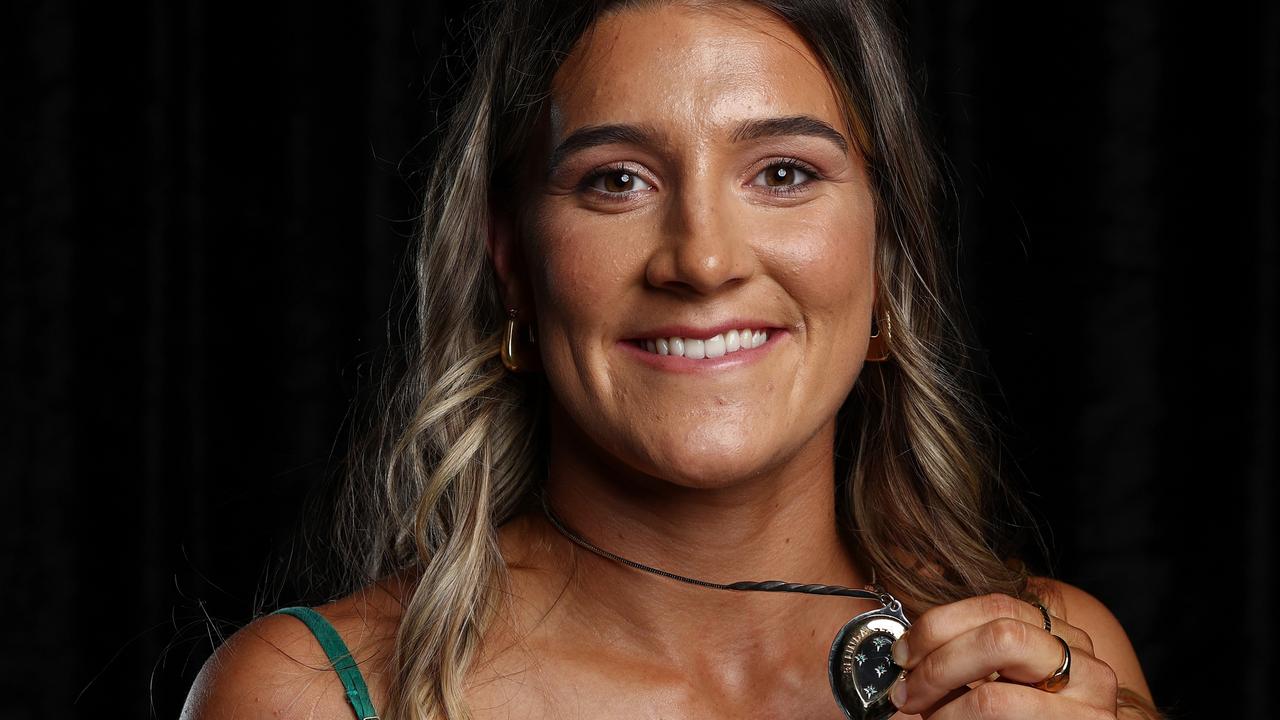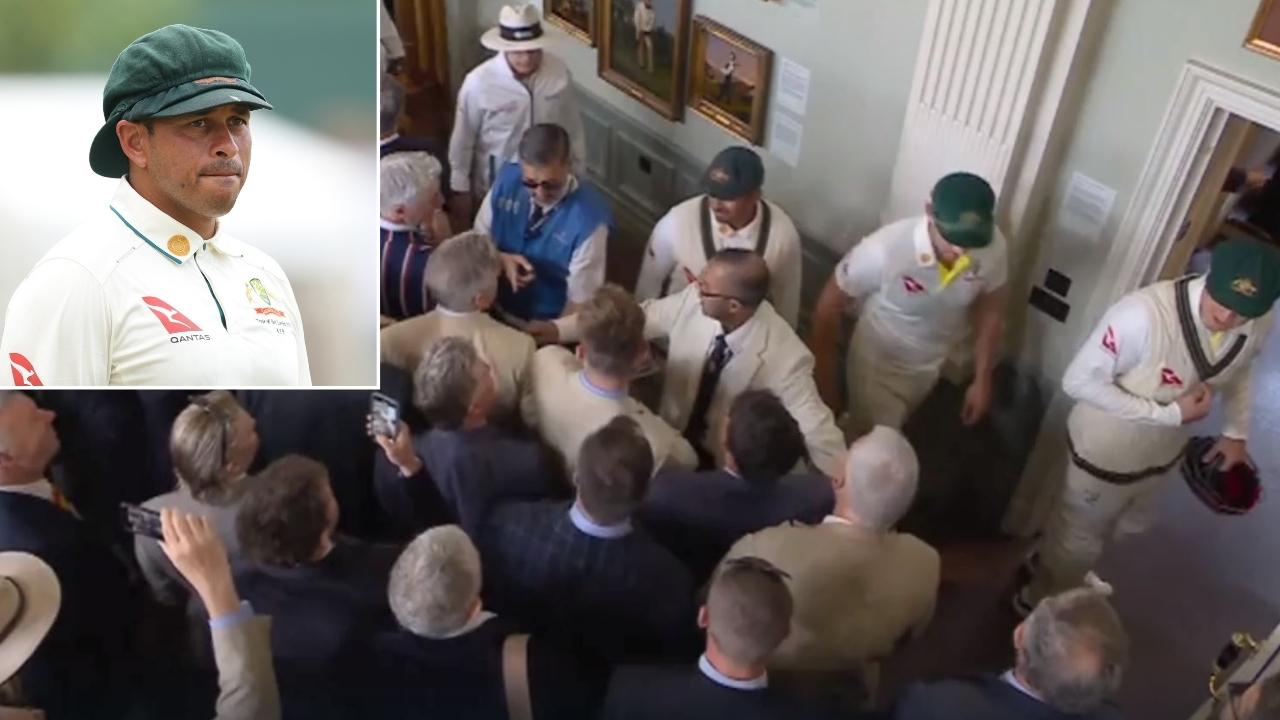Aussie skipper Aaron Finch calls for Cricket Australia to flood schedule with more 50-over games
It’s little wonder England and India are the top two countries in ODIs. As Australia floods the T20 market, their greatest rivals are playing up to 10-times the amount of domestic one-day matches.
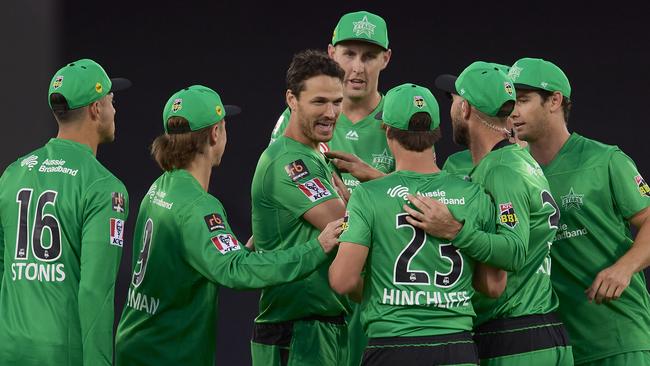
Cricket
Don't miss out on the headlines from Cricket. Followed categories will be added to My News.
Fears the overcooked Big Bash League is stunting the development of Australia’s white-ball cricketers have become alarmingly real with captain Aaron Finch calling for a total revamp of the Marsh Cup.
News Corp last week revealed the backroom push for states to separate red and white-ball contracts and for an expanded 50-over tournament which could be rebranded using BBL clubs.
Finch urged Cricket Australia to not only flood the domestic schedule with more 50-over games, but to also stretch the tournament throughout the summer so games align closer with ODI series.
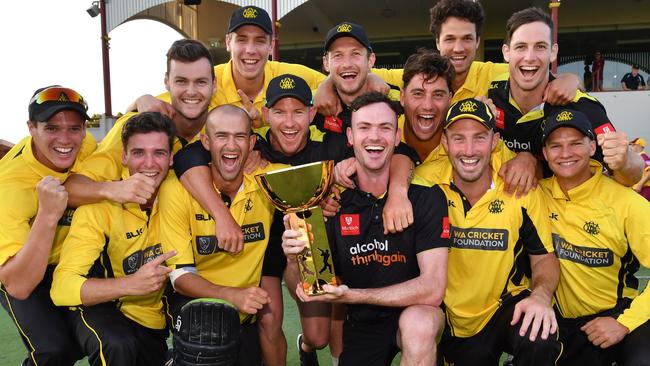
“The amount of 50-over cricket that domestically we play compared to everyone else around the world is chalk and cheese,” Finch said.
“Five games this year, six or seven last year, compared to other countries playing 10-plus games every year.
“I would love to see players playing more, particularly young guys who are still trying to learn their craft.
“When I first started it was 10 (games). By the time I was 24, I’d played maybe 40 or 50 games, whereas guys now might’ve played 15.”
The Marsh Cup was traditionally a full 10-round home-and-away series, but was reduced to eight rounds when the city-based BBL was introduced.
Since the BBL has exploded from 31 games (seven rounds) to 61 games (14), the Marsh Cup has been slashed to as little as 16 games (five rounds) and, in recent years, been hidden away in September-October, where it has effectively been used as warm-up games for the Sheffield Shield.
“Having it all done by September-October, and then playing no one-day cricket again until the same time next year, it’s not ideal when you’re trying to pick teams for the middle of January and then a tour generally on the back of the Australian summer to New Zealand or South Africa,” Finch said.
“You’re picking 50-over players on Big Bash form. We’ve got to relook at it again play deeper in the season.”
Finch was open to the idea of splitting red and white-ball contracts, which would help the likes of BBL stars Nathan Coulter-Nile, Jon Wells, James Faulkner, Chris Lynn, Chris Green and Fawad Ahmed participate in the Marsh Cup.
Coulter-Nile sold for $885,000 at Thursday’s IPL auction and played in the 2019 World Cup, but no longer holds a state contract, while Sydney Thunder finisher Ben Cutting also scored an IPL deal but doesn’t have a state contract.
Former Test batsman Callum Ferguson said 50-over cricket was a “breeding ground” for T20 and warned the marginalisation of the Marsh Cup could see the next David Warner slip through the cracks.

“If we keep cutting fixtures each year we’re going to leave ourselves in a real hole with regards to developing enough white-ball cricketers in this country,” Ferguson said.
“We’ll fall behind countries like India and England, where there is a lot more white-ball cricket played. Everyone will go, ‘Why aren’t we performing at international level?’
“You reap what you sow.”
Ferguson also backed the BBL takeover model because it would deliver two more teams and therefore more games and more opportunities.
“We’re miles behind the NRL and the AFL with regards to contract opportunities,” he said.
““You might find someone who’s really killing it in 50-over cricket and all of a sudden some of the states start thinking, ‘Maybe this guy might be a decent four-day cricketer as well’.
“We all saw Davey Warner’s path into first-class cricket and international cricket, it was exactly through that opportunity in the NSW Big Bash team, which led to him becoming one of our greatest openers in Test history.
“We might uncover two or three talents within each season, which would lead to potentially another Test cricketer.”
Grim warning: Address imbalance or risk ODI oblivion
The next David Warner could slip through the widening cracks in domestic cricket unless the marginalised one-day cup is revived, Cricket Australia has been warned.
Australia has won just one out of the past nine T20 and ODI World Cups – the 50-over edition at home in 2015 – and current stars say unless the white-ball imbalance is corrected it will fall further behind powerhouses England and India.
Former Test batsman Callum Ferguson, one of the most respected voices in domestic cricket, backed the radical push to separate red and white-ball state contracts and for Big Bash League clubs to take over the diminishing Marsh Cup.
“If we keep cutting fixtures each year we’re going to leave ourselves in a real hole with regards to developing enough white-ball cricketers in this country,” Ferguson told News Corp.
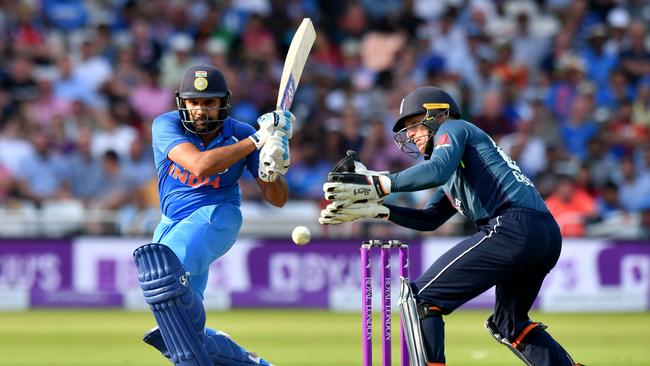
“We’ll fall behind countries like India and England, where there is a lot more white-ball cricket played. Everyone will go, ‘Why aren’t we performing at international level?’
“You reap what you sow and if we’re not offering enough opportunities and other countries are, well you know what we’re going to fall behind and it won’t be a surprise.”
The Marsh Cup was cut from 10 rounds to eight when the city-based Big Bash League was created, and has since been slashed to as little as five rounds. Just 16 games will be played this season following a 61-match BBL campaign.
England’s 18 counties play a combined 77 matches in their one-day cup while India’s 38 teams play 169 games, followed by a round-robin tournament between India A, B and C.
England’s young T20 weapon Tom Banton steeled his temperament with two centuries and three half-centuries in his most recent 50-over domestic cup while India’s Boxing Day debutants Shubman Gill and Mohammed Siraj went head-to-head in the last India B-India C representative final.
But Big Bash stars including Chris Lynn, James Faulkner, Chris Green, Fawad Ahmed, Alex Ross, Ben Cutting, Jono Wells, Dan Christian and Ben Laughlin can’t play 50-over cricket because they don’t hold state contracts.
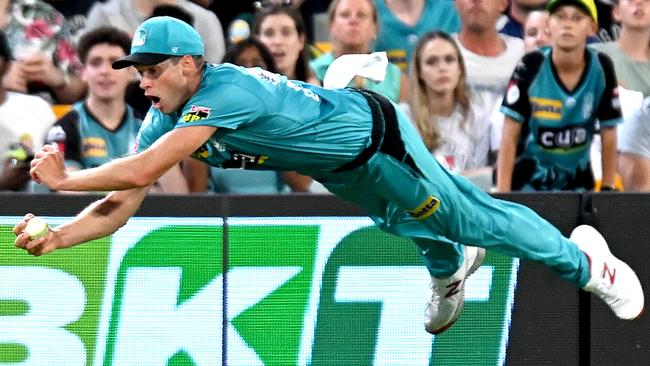
Similarly, Ferguson would be keen to play 50-over cricket next summer but conceded he was unlikely to score a state contract at South Australia without playing Sheffield Shield.
“I look at someone like Jono Wells. He is a prime example of someone who should’ve been playing 50-over cricket somewhere over the last couple of years,” Ferguson said.
“He’s just got the game built for that format and he would be a great asset for any one-day team – but there’s just no way in for him.
“We’re miles behind the NRL and the AFL with regards to contract opportunities.
“If we were able to go with the franchise model, we’d get extra games because there’s two extra teams.
“There’d be extra 22 spots to be filled and those sorts of opportunities could unearth anything.
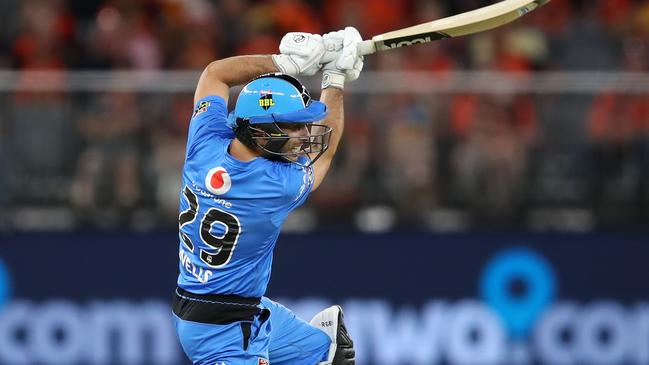
“You might find someone who’s really killing it in 50-over cricket and all of a sudden some of the states start thinking, ‘Maybe this guy might be a decent four-day cricketer as well’.
“We all saw Davey Warner’s path into first-class cricket and international cricket, it was exactly through that opportunity in the NSW Big Bash team, which led to him becoming one of our greatest openers in Test history.
“We might uncover two or three talents within each season, which would lead to potentially another Test cricketer.
“It needs to be taken seriously because we may be missing out on opportunities to find the next Davey Warner.”
Warner thumped 50-over scores of 165 not-out (112) and 97 (54) plus a T20 knock of 65 (35) for NSW to famously earn an Australian debut before he had played first-class cricket.
Broadcaster Fox Cricket wants to talk about the radical reform if it frees up more of those white-ball stars to light up the one-day cup.
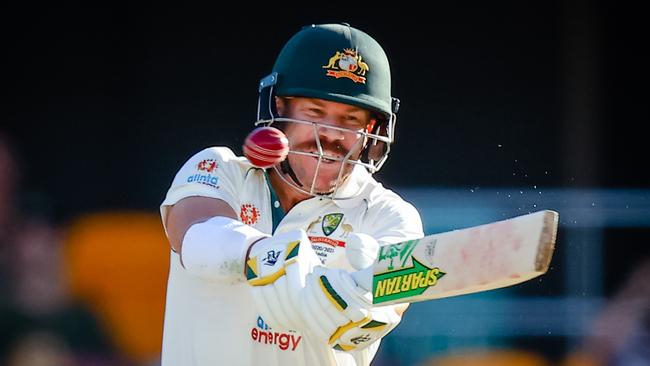
Ferguson, 36, said it was a “real shame” so many BBL stars weren’t catered for in the state system, and Melbourne Stars boss Nick Cummins said there was merit in splitting red and white-ball contracts because state talent managers prioritised Sheffield Shield players.
“Because they (BBL guns) are seen as white-ball specialists, now it’s really difficult for the states to fit them on contracts when the majority of their contracting is pretty well solely focused on Sheffield Shield and developing players for red-ball cricket,” Ferguson said.
“Which in my eyes is quite counterproductive for trying to develop a strong T20 and one-day side for the Australian team.
“There’s a real big push from Cricket Australia to develop the Big Bash and from that point of view, we’re really starving the younger players coming through of the opportunity to develop their white-ball game because we’ve played less and less one-day cricket as we’ve gone on during my career.
“I actually think that will hurt us trying to develop the next crop of T20 Big Bash players and even Australian one-day players.
“I see huge benefits in the idea to extend the Big Bash franchises into 50-over cricket, particularly when we start looking at trying to develop the next wave of young T20 stars who in my eyes aren’t getting the same opportunities and the same amount of chances to develop their skills in one-day cricket, which I believe is a real breeding ground for T20 cricketers.”

